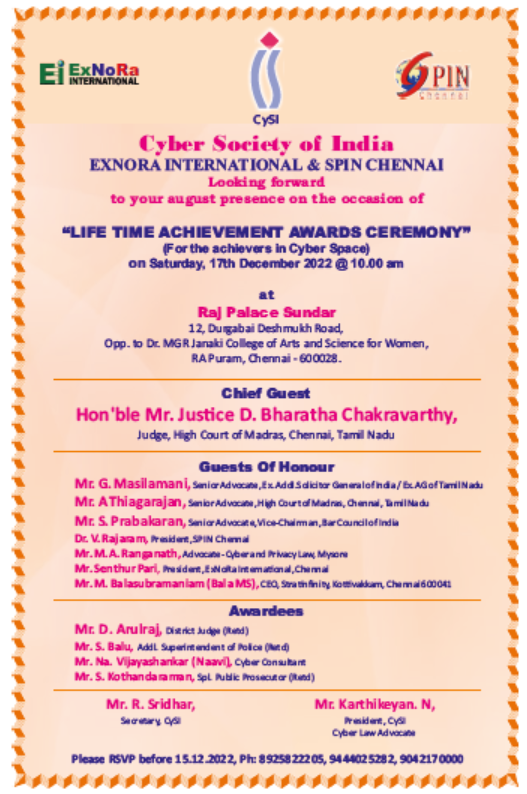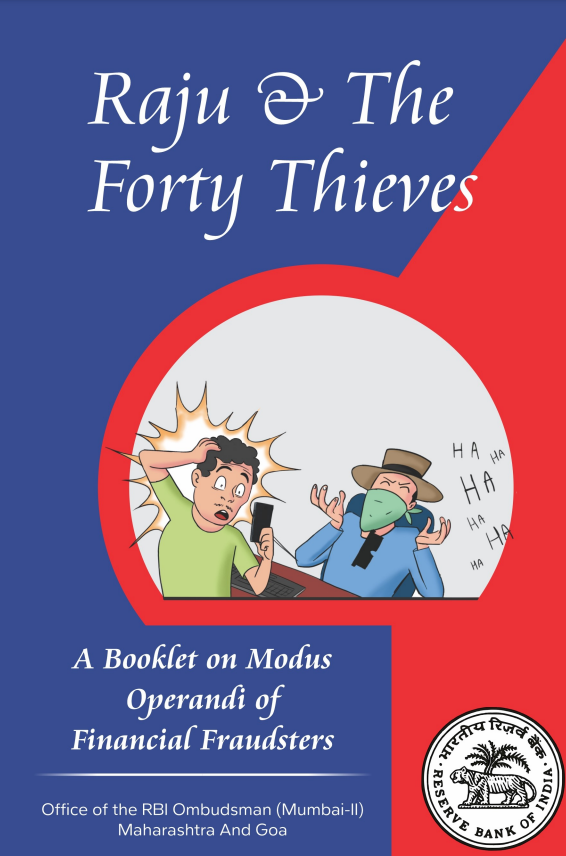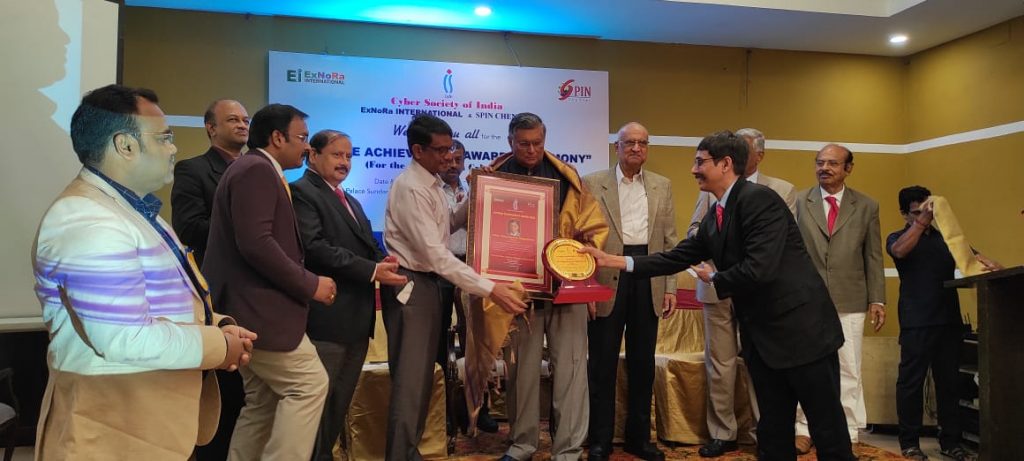
On 17h December 2022, Cyber Society of India, ExNoRa and SPIN-to Chennai conducted an event in Chennai in which Naavi was conferred a Life Time Achievement Award for his contributions to the Cyber Jurisprudence. Simultaneously three other persons who along with Naavi were instrumental in the first conviction under ITA 2000 which occurred in 2004 namely the Magistrate Sri Arul Raj, The IO, Sri Balu Swaminathan and Special Public prosecutor, Mr Kodandaraman were also facilitated with life time achievement awards.
PROGRAM
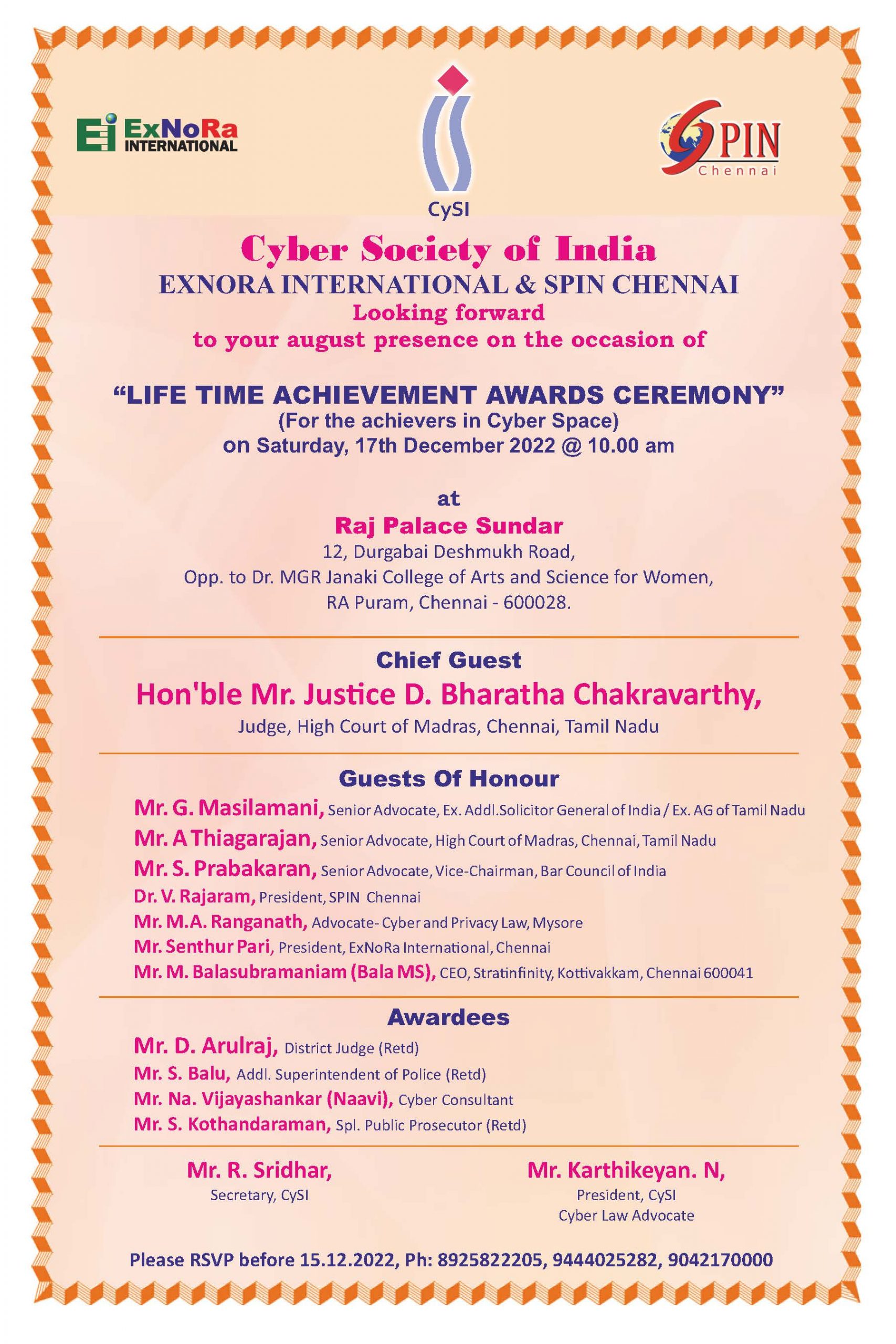 |
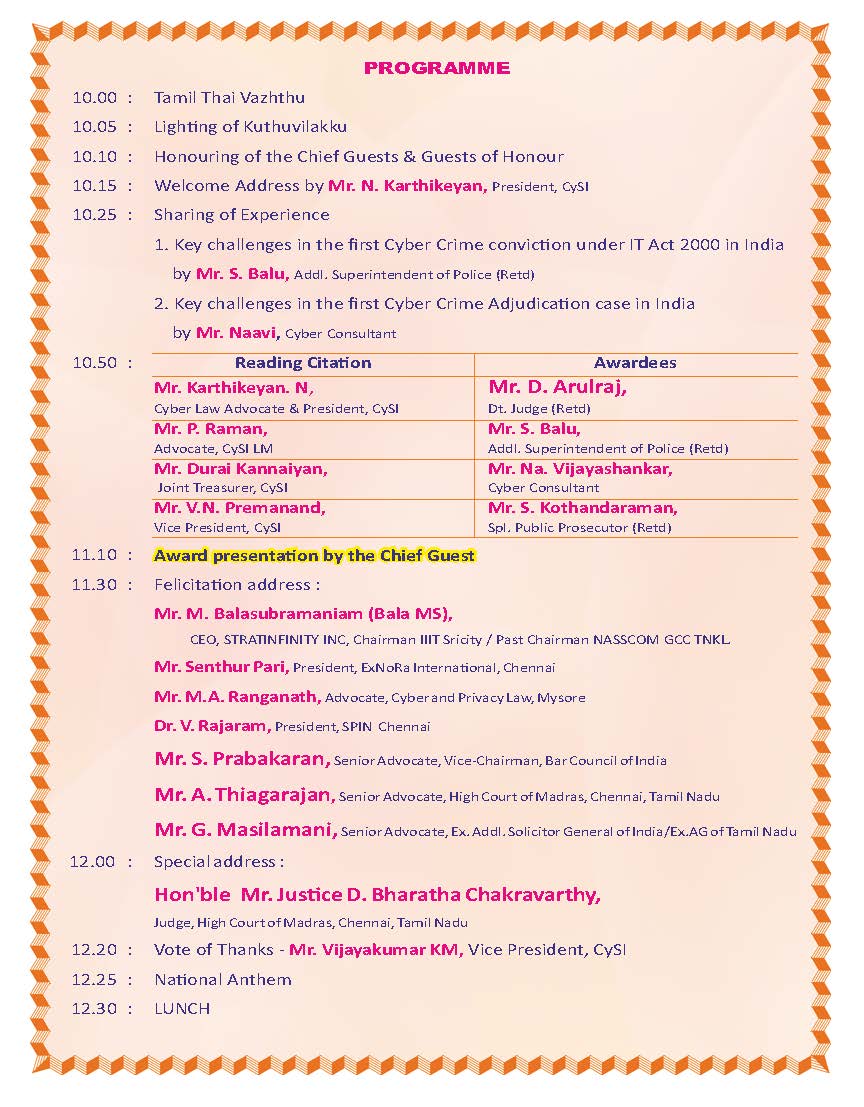 |
The event was held at Hotel Raj Sundar Palace, Raja Annamalai Puram. Several dignitaries including senior advocates participated in the event.
Sitting Judge of Madras High Court, Honourable Sri Bharata Chakravarthy gave away the awards.
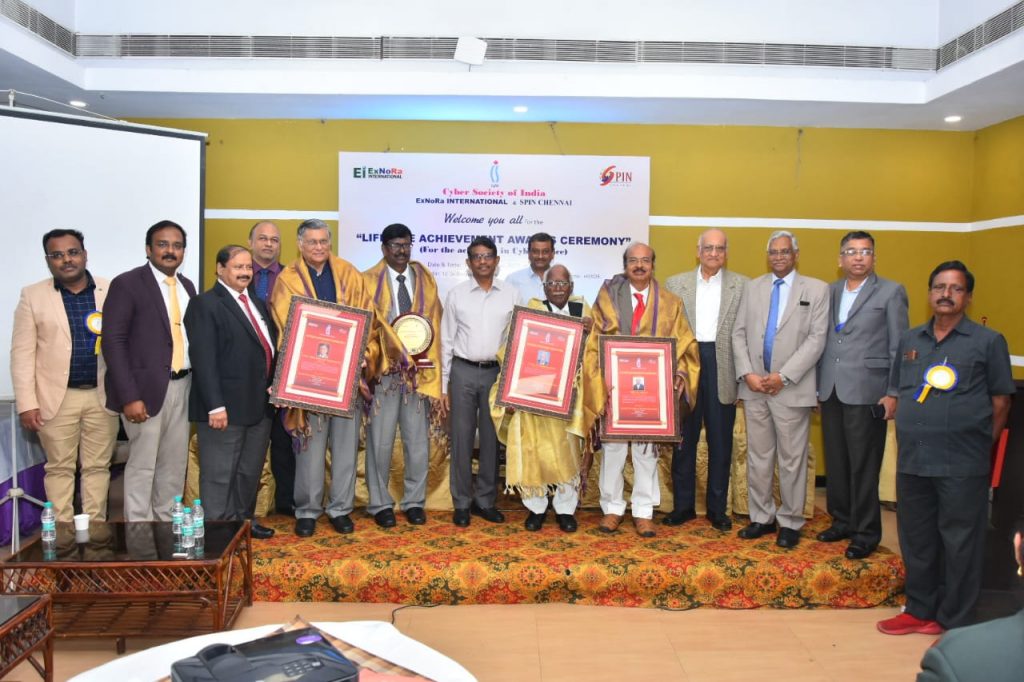
Further, Advocate M A Ranganath who argued the Umashankar case in the Madras High Court was also facilitated as a Guest of Honour.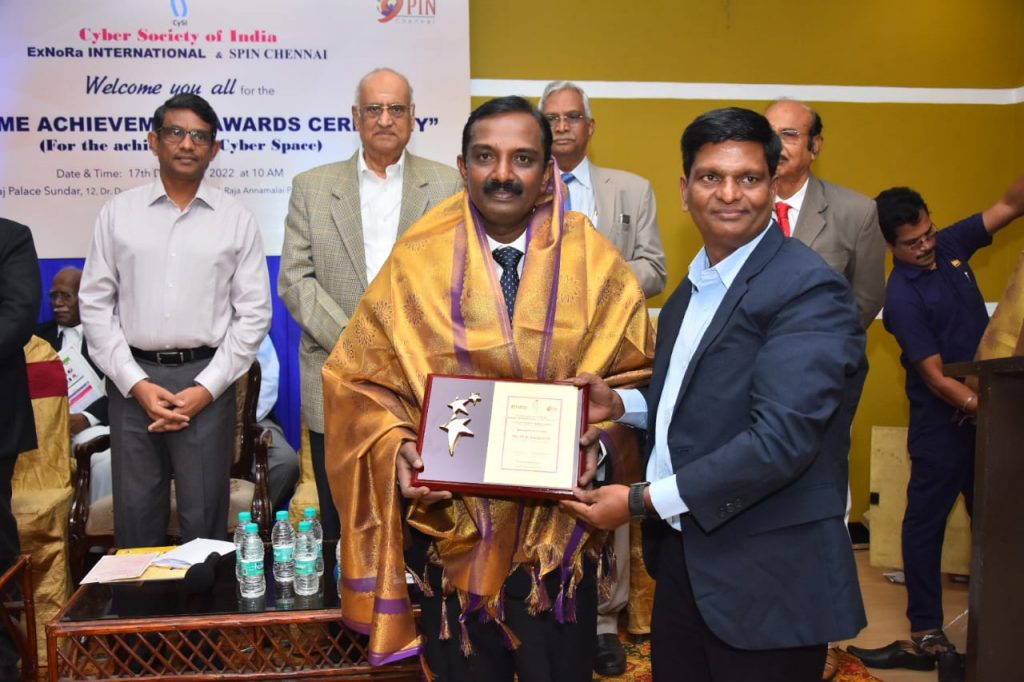
Suhas Katti case was historical because it was the first criminal conviction under ITA 2000 which occurred in the year 2004. It was also the first case in which Section 65B certificate was admitted as an evidence and was the main evidence of the offence. Naavi had presented the evidence. (Copy of the judgement is available here:
Umashankar Vs ICICI Bank adjudication was historic because it was the first instance of Adjudication under ITA 2000 resulting in the liability of the Intermediary Bank was upheld in a Phishing Case. The award was given by the then IT Secretary of Tamil Nadu, Mr P W C Dawidar in 2010.
It was subsequently confirmed by the TDSAT under the chairmanship of Honourable Retired Supreme Court Justice, Sri Shiva Kirti Singh in 2019. (During the intervening period the trial continued in Cyber Appellate Tribunal for 2 years before the Tribunal became dysfunctional and later re-started its activities under TDSAT in 2018).
Further the Bank filed an appeal in Madras High Court and the trial was concluded and Judgement dismissing the appeal was released on November 9, 2022.
Naavi argued the case under a Power of Attorney on behalf of the victim Sri S Umashankar who is an NRI, in Adjudication, Cyber Appellate Tribunal and TDSAT. In Madras High Court he was the Expert to assist the Court and Advocate Ranganath presented the arguments.
The judgement copies in S Umashankar case are available below:- Adjudication award from Adjudicator of Tamil Nadu
- TDSAT Judgement of January 2019 and Reviewed Judgement from TDSAT of March 2019
- AO’s order following TDSAT Review
- Madras High Court order on Naavi as PIP
- Judgment of Madras High Court.
Naavi

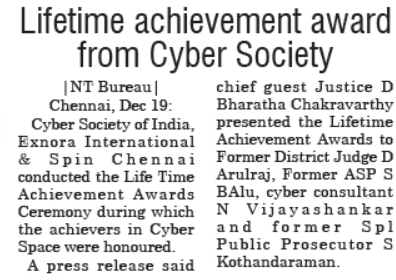 Also read:
Magistrate D Arul Raj is an unsung hero in development of Jurisprudence under Section 65B of Indian Evidence Act : December 9, 2017
The beginning
The End
Also view the Discussion on the case at FDPPI
Some videos I found on Youtube :
Also read:
Magistrate D Arul Raj is an unsung hero in development of Jurisprudence under Section 65B of Indian Evidence Act : December 9, 2017
The beginning
The End
Also view the Discussion on the case at FDPPI
Some videos I found on Youtube :

